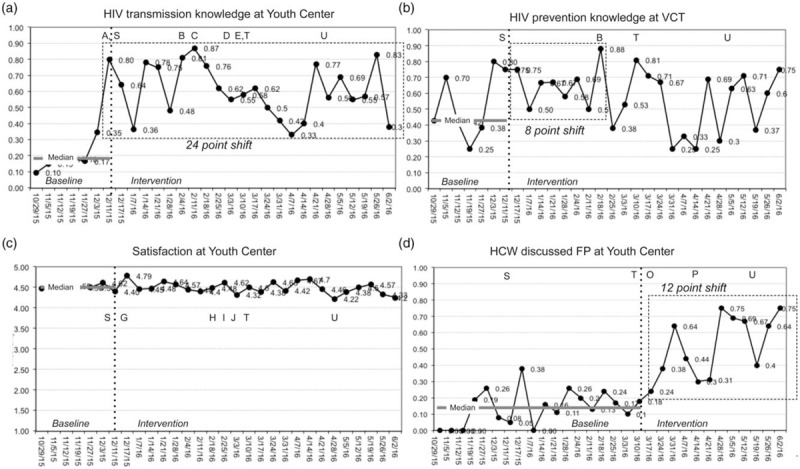Fig. 1.
Selected illustrative run charts.

Panel a: CQI initially improves HIV transmission knowledge indicator, but initial success is followed by some regression to lower levels. Renewed effort with a more reliable change concept results in substantial and sustained increase in indicator. Panel b: Baseline performance is erratic and unreliable; CQI process has early success in increasing performance in HIV prevention knowledge, but indicator returns to baseline levels over time. Panel c: CQI has no impact on adolescent satisfaction, which began and remained high throughout the baseline and intervention periods. Panel d: Discussion of family planning services is low during baseline; CQI process improves this secondary outcome. Letters A through U refer to change concepts and trainings described in Table 1.
